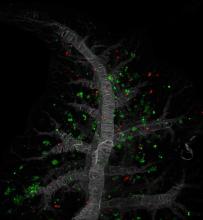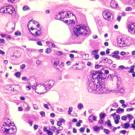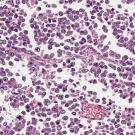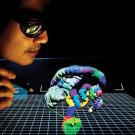News
Immune-Cell Population Predicts Immunotherapy Response in Melanoma
The abundance of a subtype of white blood cells in melanoma tumors can predict whether or not patients will respond to a form of cancer immunotherapy known as checkpoint blockade, according to a new study led by UC San Francisco researchers and physicians. The research offers the beginnings of a
One Minute of Second-Hand Marijuana Smoke Impairs Cardiovascular Function
One minute of exposure to second-hand smoke (SHS) from marijuana diminishes blood vessel function to the same extent as tobacco, but the harmful cardiovascular effects last three times longer, according to a new study in rats led by UC San Francisco researchers. In a healthy animal, increased blood
UCSF Selects Architects for Precision Cancer Medicine Building
UC San Francisco has selected international architecture firm Stantec Inc. to design its new, state-of-the-art Precision Cancer Medicine Building (PCMB) to integrate research and world-class patient care on the UCSF Mission Bay campus. Stantec, which was selected for its extensive experience
Childhood Cancer Hijacks Cellular Quality Control System to Fuel Growth
A serious childhood cancer takes advantage of a quality control mechanism that usually protects cells from stress-induced damage to propel tumor growth, according to a new study led by researchers at UC San Francisco and the University of Pittsburgh. By blocking that mechanism, the scientists were
Go-Between Immune Cell is Key to Priming the Body's Fight Against Cancer
Using advanced imaging technology that allowed them to spy on interactions among cells in the lymph nodes of living mice, a research team led by UCSF scientists has identified a cell that is a key player in mounting the immune system’s defense against cancer. The finding opens a new avenue for
Covert Inflammation May Trigger Many Forms of Cancer
A previously unidentifiable type of low-grade inflammation may explain why common anti-inflammatory drugs such as aspirin have shown promise against some types of cancer – even when patients don’t display typical signs of inflammation. A team led by researchers in the labs of Atul Butte, MD, PhD
3-D Virtual Reality Colonoscopy: Pursuing a Better Path to Colorectal Cancer Prevention
At UCSF’s 3-D Imaging Lab, radiologist Judy Yee, MD, pulls up an image that looks more like a birthday party balloon animal than a patient’s colon: a vibrant, color-segmented tube, torqued and twisted in on itself. Created from thin slices of a computed tomography (CT) scan, the image appears









